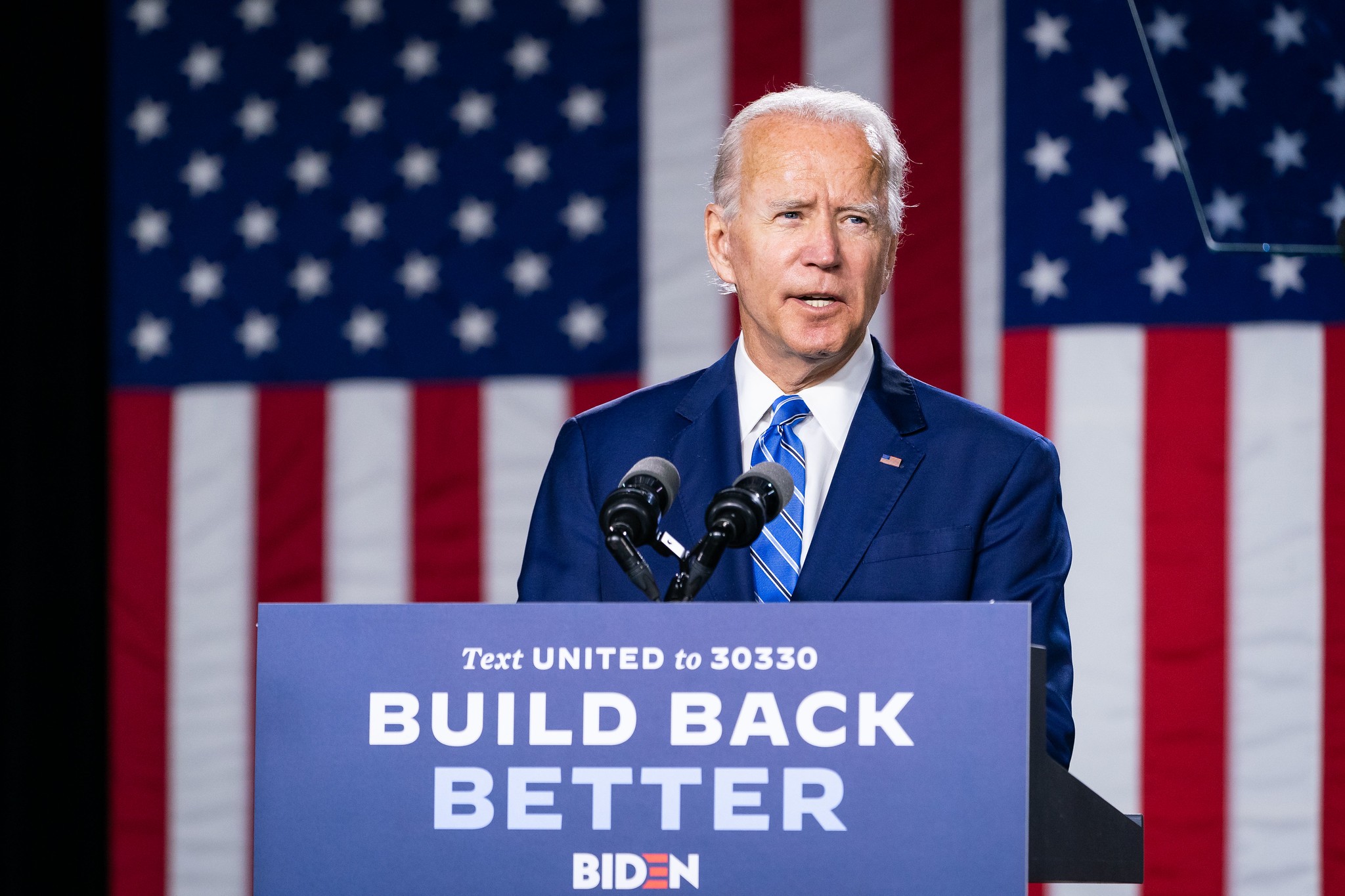 Build Back Better press conference. (Adam Schultz / Biden for President)
Build Back Better press conference. (Adam Schultz / Biden for President)
Biden Time Until January: Assessing Key Nuclear Policies of a Biden Presidency
The landscape of U.S. nuclear security and policy is going to look a lot different over the next four years under President-elect Biden than it has under President Trump. On the campaign trail, Biden advocated for the scale-back of current plans for the U.S. nuclear arsenal and the establishment of a no-first-use nuclear policy, although this latter platform is now under review.
Biden is also expected to take a much more measured, diplomatic approach to relations with other nuclear-armed countries. His likely pick for Secretary of Defense is Michèle Flournoy, who served as President Obama’s Under Secretary of Defense for Policy. Flournoy, a respected figure in the defense community, has expressed a more cautious approach to nuclear modernization, emphasizing an effective nuclear deterrent as one part of defense modernization as a whole.
Let’s take a look at the four nations that the U.S. is most concerned about with regards to nuclear security, explore what might change during a Biden presidency, and what successes in the nuclear realm might look like within the next four years.
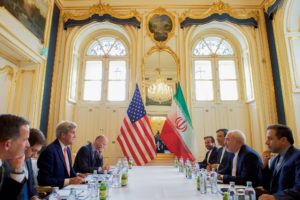
JCPOA discussions in Vienna. (U.S. Department of State photo)
Iran
The May 2018 U.S. withdrawal from the Joint Comprehensive Plan of Action (JCPOA) and the subsequent implementation of Trump’s maximum pressure campaign drew significant international criticism. Biden has already pledged to rejoin the JCPOA, but Tehran will undoubtedly hardline its way back to the deal as it works toward rejoining in the end. Biden also faces the consequences of the U.S. withdrawal, with Iran having pulled back on its commitments to the JCPOA and is thus in a much better bargaining position than the U.S. All in all, both countries will tread carefully as they re-approach the deal, but there will likely be a return to the JCPOA that is substantively similar to its original form.
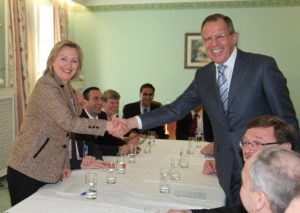
The signing of New START. (U.S. State Department photo)
Russia
The Trump administration’s handling of New START, the 2011 bilateral U.S.-Russia nuclear arms reduction treaty, has been anything but particularly smooth; the most recent discussions have apparently come to an unclear and disagreeable close. Biden has committed to renewing the agreement, which is set to expire in February 2021, so this will be a top priority for his administration in the very first month. There simply isn’t enough time to negotiate a new deal, and, like the JCPOA, the deal is mutually beneficial, save for a few sticking points like the lack of limits on tactical nuclear weapons. It is also possible that the Biden administration could renew the deal for a few years and attempt to renegotiate a new agreement, especially if the new negotiations retain the bilateral nature of the treaty instead of attempting to include third parties.
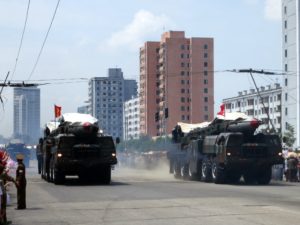
July 2013 military parade in North Korea. (Stefan Krasowski / Flickr)
North Korea
As much as Biden advocates for diplomatic discussions with North Korea on its growing nuclear arsenal, denuclearization is too lofty of a goal for any president in the near future, even if it is a long-term American goal. Biden is likely to push for a nuclear drawdown and a move away from Trump’s many stalemate-esque summits with North Korea. A huge success for the next American president would be the ability to rein in the Kim regime’s ambitions by getting North Korea to the table and agreeing to something like a nuclear cap — though this is likely to be criticized as a legitimization of North Korea’s nuclear status.
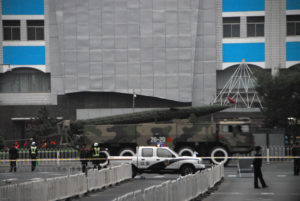
Training exercise before the 60th National Day military parade. (gadgetdan / Flickr)
China
Defense experts and analysts have agreed that China’s nuclear force modernization is growing decidedly more concerning in the realm of great power competition. While the Trump Administration pushed for China to join a multilateral nuclear arms deal with Russia as part of a New START replacement, which China categorically rejected, Biden has been tight-lipped about strong opinions toward China and its expanding arsenal. However, Biden has adopted a stauncher stance on China than he previously has in the Senate, advocating for the prioritization of a strong defense platform to keep pace with China while uniting with allies to confront China on trade and human rights violations.
Key takeaways
For Biden, consistency and longevity will be key. Restoring strong U.S. diplomatic and strategic positions in the rules-based international order will be paramount to the success of the Biden administration’s nuclear policies. Non-proliferation efforts and nuclear arms agreements must have a degree of assured longevity if they are to be effective. As the Biden administration pursues new rounds of negotiations with several of these countries, they will want assurance that subsequent U.S. administrations will not simply pull out of a deal it views unfavorably. In the case of a formal arms control treaty, this is challenged by the requirement of Senate approval and a high degree of congressional buy-in overall.





